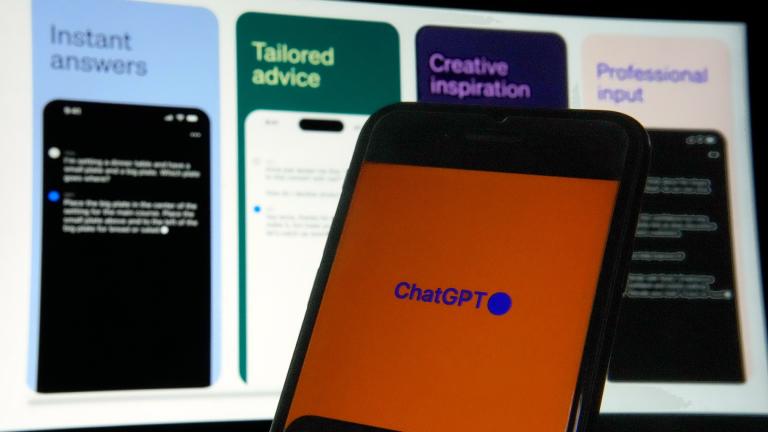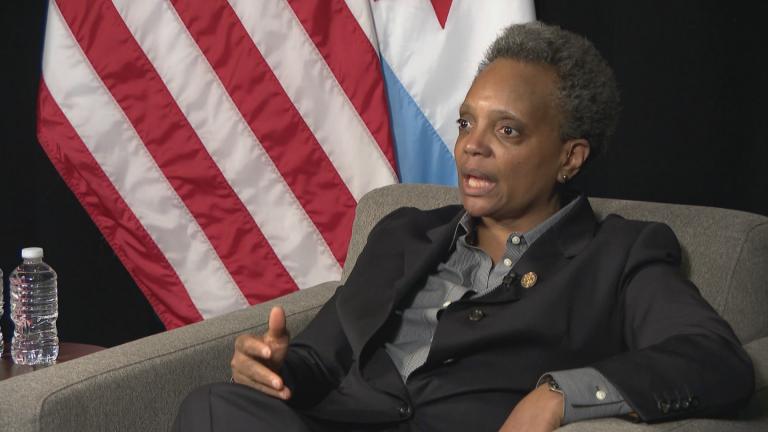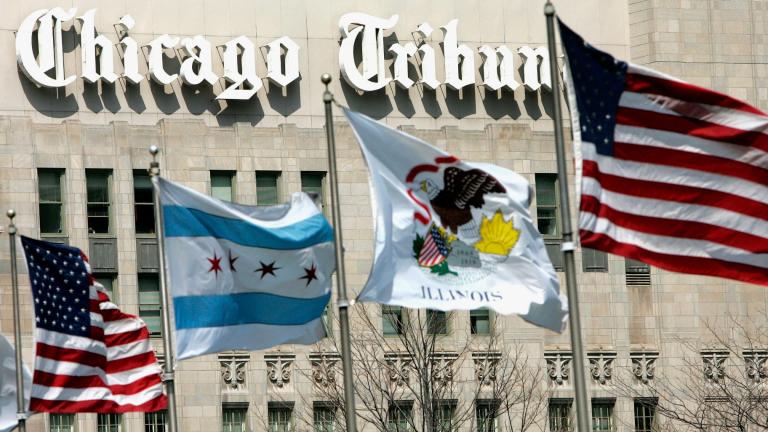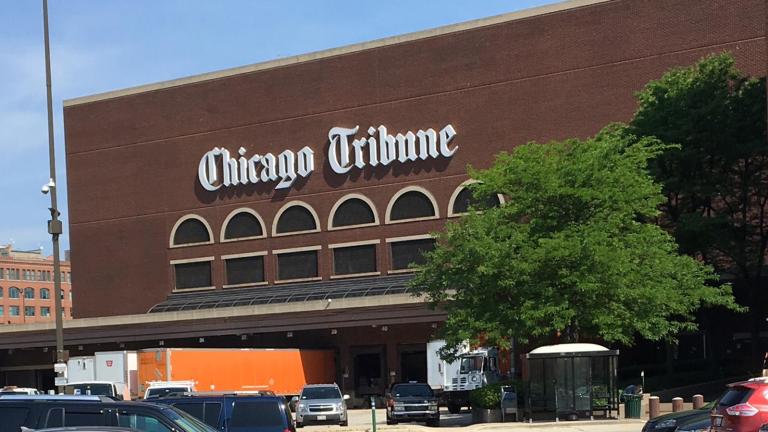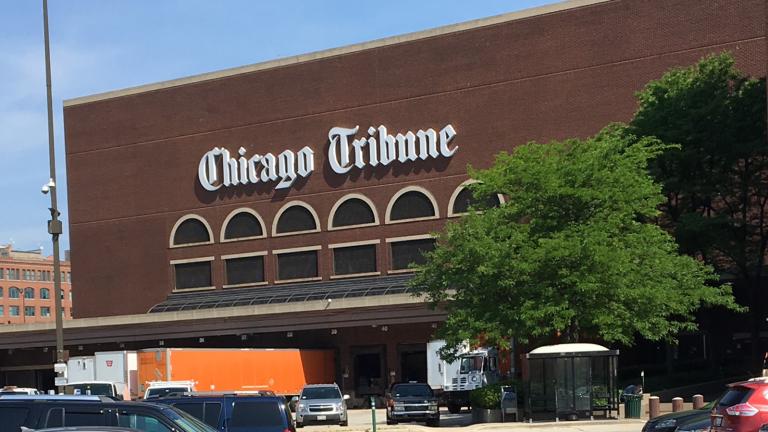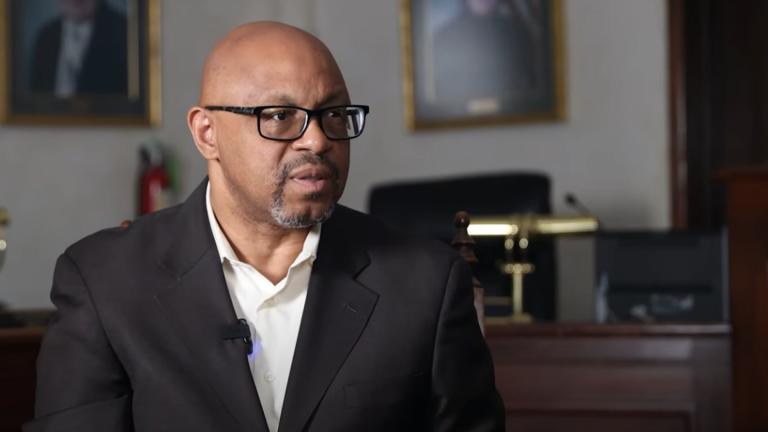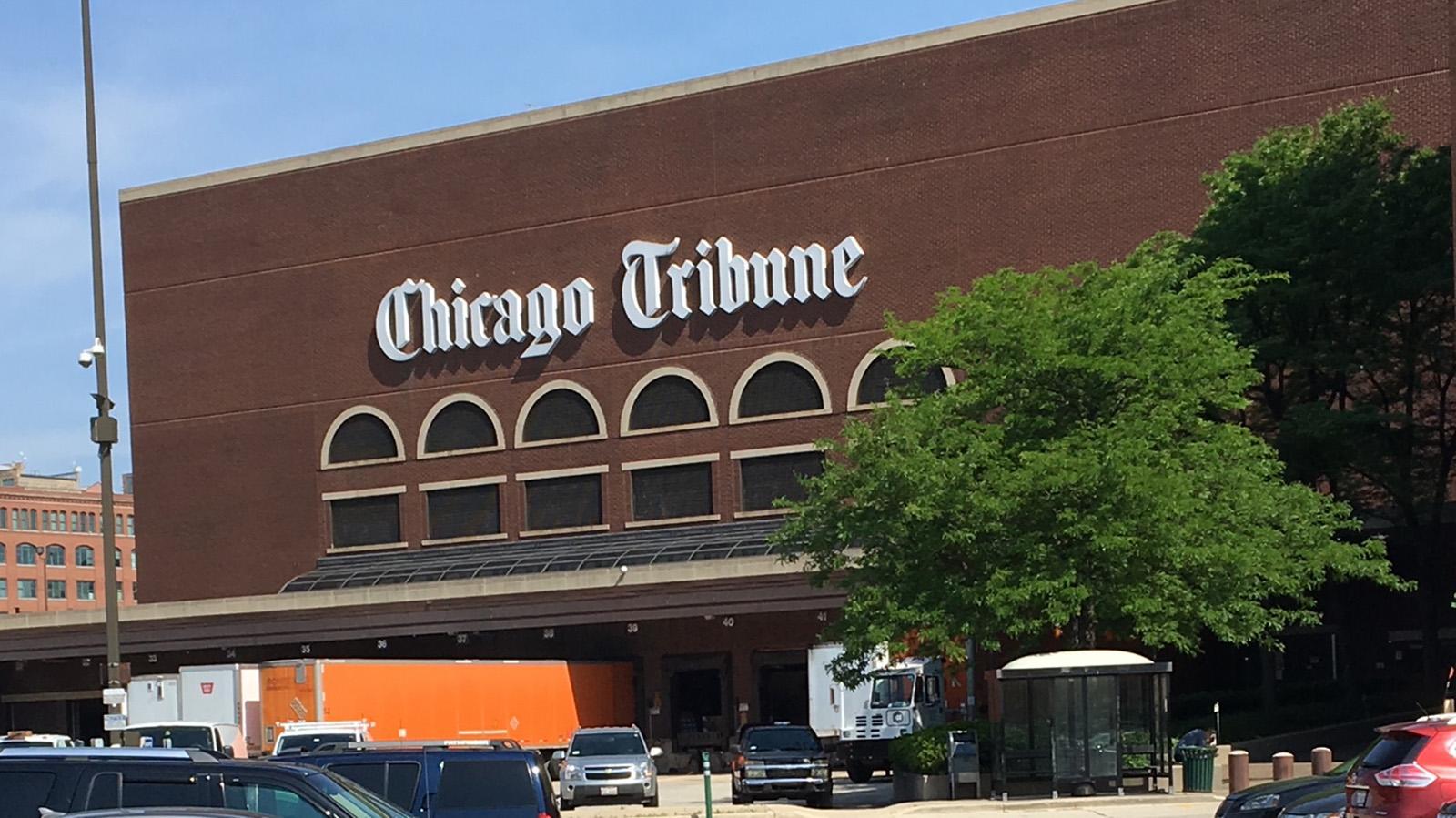 The Chicago Tribune Freedom Center printing complex is pictured in a file photo. (WTTW News)
The Chicago Tribune Freedom Center printing complex is pictured in a file photo. (WTTW News)
A group of seven Chicago Tribune journalists is suing the newspaper and its ownership group, alleging there has been a “company-wide, illegal underpayment of female and African American” employees.
The journalists filed a federal class-action lawsuit Thursday against the Tribune, its previous owner the Tribune Publishing Company and its current owner Alden Global Capital, alleging they’ve faced pay discrimination based on gender, race and ethnicity as a result of the defendants’ “centralized policies and practices.”
“The Chicago Tribune employs some of the most highly-regarded journalists in the nation, with individualized talents, experiences, and contributions to our national conversation,” the plaintiffs wrote in a 53-page complaint. “However, one thing remains consistent across each section of the Chicago Tribune’s news operation — women and African American employees are underpaid by several thousands of dollars a year compared to their male and white counterparts.”
The seven journalists who filed suit are criminal justice reporter Madeline Buckley, photojournalists Stacey Wescott and Terrence James, opinion content editor Colleen Kujawa, deputy senior content editor Deanese Williams and senior reporters Darcel Rockett and Christy Gutowski.
They are representing a group of “greater than 50 individuals” through their class action suit, the complaint states.
Alden Global Capital did not immediately respond to a request for comment.
The companies allegedly pay women and Black journalists “systematically lower compensation” even when they are doing similar or identical work to other colleagues.
According to the lawsuit, when hiring journalists, the defendants rely on employees’ past salaries to determine pay, which “institutionalizes and internalizes discriminatory pay disparities.”
For instance, the lawsuit alleges the companies will intentionally hire women and Black employees from smaller, suburban newspapers, because they know those papers pay much lower salaries than other newspapers. But White male employees are more often recruited from other major news organizations and are offered higher salaries, the complaint states.
The Tribune also relies on residency programs as a source of “cheap labor,” according to the complaint, which claims that if journalists were hired out of those programs for a full-time role, the Tribune would use their resident pay to “anchor” that employee’s starting salary.
“They’re given management a lot of opportunities — both previous ownership in the Tribune and current ownership in Alden Global — to do the right thing,” Michael Morrison, an attorney representing the journalists, told WTTW News. “And unfortunately, despite reviewing statistics, having a statistician look at those statistics, saying there is a problem here, neither ownership is willing to acknowledge it.”
James has worked at the Tribune for more than 30 years, but as the only Black photojournalist at the paper he has received just one significant pay raise during his tenure, according to the lawsuit, while other, non-Black photojournalists with less experience and industry recognition are making “substantially more money.”
Wescott has worked with the Tribune for nearly 25 years and despite her lengthy and successful career, she is one of the lowest paid visual journalists at the newspaper, earning more than only a 2023 hire and one male colleague, according to the complaint.
The lawsuit states there is “(n)o legitimate factors account for the enormous, statistically significant pay gap that the Tribune has created and intentionally maintains.”
Morrison said the group is seeking back pay, damages and injunctive relief in the form of a pay audit analysis and the leveling of salaries for Tribune employees. He’s hoping for the opportunity to sit down with Tribune ownership and reach an agreement that not only improves pay for current journalists, but establishes a sustainable pay structure going forward.
“It’s not about people just wanting more money or seeking a pay raise, it's about basic fairness and equality,” he said. “It’s about making journalism an attractive place for women and people of color, such that they want to join this profession. We need their voices, especially at this time, and if they’re not paid fairly then we’re going to lose these voices in this profession.”

